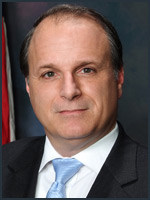 Today marks the first anniversary of news that Time Warner Cable planned to expand an Internet Overcharging scheme being tested in one Texas city to four additional cities within its service area.
Today marks the first anniversary of news that Time Warner Cable planned to expand an Internet Overcharging scheme being tested in one Texas city to four additional cities within its service area.
Residents of Rochester, New York, the Triad Region surrounding Greensboro, North Carolina, as well as Austin and San Antonio, Texas first learned of the planned expansion of so-called “metered broadband” from a Business Week article dated March 31st, which has since accumulated more than 450 comments to date:
Web users, the meter is running. In a strategy that’s likely to rankle consumers but be copied by competitors, Time Warner Cable is pressing ahead with a plan to charge Internet customers based on how much Web data they consume. Starting next month, the company will introduce tiered pricing in several markets.
In April, Time Warner Cable will begin collecting information on its customers’ Internet use in the Texas cities of Austin and San Antonio and in Rochester, N.Y. Consumption billing will begin in those cities later this summer. In Greensboro, N.C., the billing changes will begin sooner. Spun off from Time Warner this month, Time Warner Cable had been testing a plan to meter Internet usage in Beaumont, Tex., since last year.
Proposed pricing models created by Time Warner Cable would have tripled broadband bills to an unprecedented $150 a month for consumers seeking the same level of broadband service they enjoyed a month earlier. For a cable industry that was used to pushing through rate increases well above the annual rate of inflation, such an enormous rate increase was unprecedented, even for them.
For consumers willing to ration their broadband use, the news was slightly better — you’d still pay more for less service, and be exposed to overlimit fees and penalties should you exceed your monthly allowance, which was as low as a 1 GB per month for one proposed plan.
While residents of Beaumont, Texas had to endure these prices for several months prior to the announced expansion of experimental Overcharging, once news hit tech-savvy cities in Texas, New York, and North Carolina, an all-out consumer rebellion began. Residents in Austin met with city officials to discuss alternatives to a cable company that threatened Austin’s high tech status. For residents in Rochester, already coping with a 5 GB usage allowance for Frontier Communication’s DSL service, it was a clear-cut case of monopolistic greed. In North Carolina, working to transition its way towards a digital economic future, an Internet rationing plan would hurt the economy of the entire Triad region. San Antonio residents were equally unimpressed with the cable operator as well, demanding alternative providers.
Consumers banded together on Stop the Cap! and other consumer-oriented websites to coordinate the pushback effort. Protests were held, the media was engaged, and at least in New York, the politicians were not going to sit back in Time Warner Cable’s favor. Former Rep. Eric Massa expressed outrage at the company for its new pricing plan and Senator Chuck Schumer personally called Time Warner Cable CEO Glenn Britt.
A few lapdogs in the trade press and “dollar a holler” astroturf groups praised Time Warner Cable’s price gouging plans. One even went as far as to suggest Time Warner Cable “took one for the team” — referring to a cable industry just waiting to test some Internet Overcharging of their own.
Time Warner Cable dispatched some of their social media minions to try and explain away the outrageous price increases, offering to “listen” to consumers with suggestions about how to “improve the plan.” One, like TWCAlex offered “proof” consumers wanted this kind of pricing. The disingenuousness of the effort rivaled Lord Haw Haw’s Germany Calling propaganda broadcasts on the Reichssender Hamburg. Company officials ignored the overwhelming consensus that consumers didn’t want metered or capped service and then weeks later those who did submit comments were notified they were “deleted without being read.”
Meanwhile, Rep. Massa’s office began drafting legislation to ban the unprecedented pricing schemes, culminating in a bill introduced in 2009 to ban unjustified usage caps and metered billing.
On April 9th, Landel Hobbs, Chief Operating Officer of Time Warner Cable, issued a recitation of the reasons why Time Warner Cable felt justified in exposing customers to up to 150 percent rate hikes — reasons we’ve managed to debunk over the past year’s coverage:
With the ever-increasing flood of content on the Internet, bandwidth consumption is growing exponentially. That’s a good thing; however, there are costs associated with this increased Internet usage. Here at Time Warner Cable, consumption among our high-speed Internet subscribers is increasing by about 40% a year. As a facilities based provider, we’ve built a network that must be maintained and upgraded. We have increasing variable costs and we have to continue to invest in the network itself.
As we’ve since proven, Hobbs statements to the public obscure the facts in his own company’s financial reports which are remarkably consistent quarter after quarter: revenues for broadband service are increasing while the costs to provide it are falling. In fact, broadband is rapidly becoming the most important element of the cable industry’s quest for fat profits. Time Warner Cable, as well as others, have plenty of financial resources from the billions in profits they earn from broadband every year to provide cost-effective upgrades that benefit them as well as consumers at today’s flat rate prices.
Just a few weeks ago, Hobbs told investors consumers are so devoted to their broadband service, the company could raise broadband prices anytime they like. Funny how “increasing costs” never came into the discussion there.
This is a common problem that all network providers are experiencing and must address. Several other providers have instituted consumption based billing, including all major network providers in Canada and others in the U.K., New Zealand and elsewhere. In the U.S., AT&T has begun two consumption based billing trials and other providers including Comcast, Charter and Cox are using varying methods of monitoring and managing bandwidth consumption.
As Stop the Cap! has illustrated repeatedly, such consumption billing schemes are despised by consumers -and- most countries see them as hampering their digital economy. Australia and New Zealand have government initiatives to improve broadband service to the point where consumption billing and usage caps are a distant memory. Canada’s usage based billing schemes come from market concentration, particularly from Bell which is by far the largest wholesale supplier of bandwidth in the country. Their quest for profits, along with a compliant regulatory body (the CRTC) has made such ripoff pricing commonplace. The result on Canada’s broadband rankings are clear as the country continues to fall further behind other OECD nations. Canadians do not want such pricing, but when a duopoly is allowed to exist unfettered by appropriate oversight, the end result is always the same – higher prices for poorer service. In the United Kingdom, several flat rate plans are available, with more on the way as the UK embarks on its own Digital Economy plan.
There are other reasons why such consumption billing schemes are in place in other countries – namely insufficient international capacity to move traffic back and forth outside of the region. That too is being addressed.
That other cable operators are overcharging consumers or limiting their usage is hardly a surprise considering insufficient competition in the marketplace makes that possible. However, Comcast’s 250 GB limit is far more generous than anything Time Warner Cable proposed, Cox rarely enforces their limits, and Charter recently announced it had abandoned theirs.
For good reason. Internet demand is rising at a rate that could outpace capacity within a few years. According to industry analysts, the infrastructure may not be able to accommodate the explosion of online content by 2012. This could result in Internet brownouts. It will take a lot of money to fix the problem. Rather than raising prices on all customers or limiting usage, we think the fairest approach is to move to a tiered model in which users pay more if they use more.
Hobbs’ reliance on the “exaflood” or the “zettabyte” theory of Internet brownouts comes courtesy of the prostituting, industry-backed Discovery Institute — the people who will cough up bought and paid for “research studies” that say anything the buyer wants them to say and Cisco, which makes a handsome buck off selling broadband network equipment to providers they panic with stories of Internet data tsunamis and brownouts.
Two weeks after the Business Week article, Senator Schumer flew to Rochester and joined a few of our local Stop the Cap! members and myself to announce the end of the nightmare — no more Internet Overcharging consumers in any of the three states. Even Beaumont was soon freed from the ripoff pricing experiment.
But Time Warner Cable promised that one day, they could be back with the same schemes, after “educating their customers.” Stop the Cap! has spent the last year assembling an extensive record of just how unjustified these pricing schemes really are, and we’ve been educating consumers about how an duopolistic broadband industry is seeking to monetize and control as many aspects of America’s online experience as possible.
We’ve exposed dozens of astroturf and other industry-backed groups trying to peddle the broadband industry agenda, often trying to hide who is paying the bills. Whether it’s scare stories about broadband brownouts, fear that oversight and regulation will drive away investment and reduce service, or the need to stop Net Neutrality — it’s all designed to protect provider profits, not help consumers.
There is nothing fair about Internet Overcharging schemes. There has never been a true consumption billing scheme that charged consumers nothing if they didn’t use the service, and the prices being charged for consumption above one’s allowance are often several thousand percent above actual cost. Indeed the CEO of Crown Fibre Holdings CEO Graham Mitchell, admitted the truth about such pricing schemes when he told Techday that where ISP’s engage in such pricing schemes, they don’t make their money in providing access to broadband; they make it out of data caps.
We have no illusion providers won’t be back for a second bite at your wallets, which is why the education effort continues. Over the last year, we’ve expanded our coverage to promote better broadband, and to expose bad actors among the broadband cable, telephone, wireless, and satellite industry. We’ll continue to expose lobbying efforts to legislate away oversight, consumer protection, and limit potential competition. Stop the Cap! also continues to fight for improved rural broadband that moves beyond today’s satellite fraudband that delivers woefully slow, heavily limited and expensive service. We’ll also coordinate efforts to push back whenever Internet Overcharging schemes appear on the horizon, and we won’t let go until such language is banished from customer agreements and Acceptable Use Policies, whether they are formally enforced or not.
One year later, America’s broadband users are safer from such schemes, but not yet safe. Thanks to all of our readers for staying engaged.


 Subscribe
Subscribe


Wow! I can’t believe it’s been a year already! It seems like yesterday that all this started. I year ago I knew almost nothing about telecom policy, but I knew that what TWC was about to do just felt wrong. I’ve learned so much in the past year, probably more than most politicians. This issue has awoken an interest in politics that I didn’t know I had, and I have Phillip to thank for that. With the National Broadband Plan implementation and Net Neutrality issues that lie ahead, I feel this past year has prepared me to do my part… Read more »